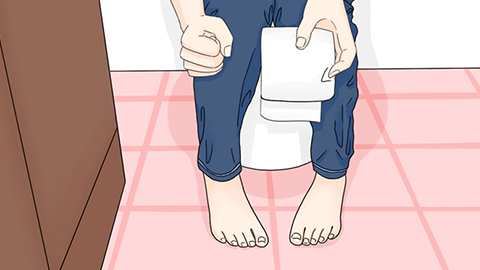What are the symptoms of having hemorrhoids?
Generally, as a common anorectal disease, hemorrhoids mainly present symptoms including anal pain, rectal bleeding, anal itching, anal mass, and discomfort during defecation. A detailed analysis is as follows:

1. Anal pain: Patients often experience anal pain, the severity of which varies depending on the type and severity of hemorrhoids. Pain is more intense and persistent when thrombosis or inflammation occurs in external or mixed hemorrhoids, worsening during bowel movements or walking. Internal hemorrhoids typically do not cause significant pain, but severe pain may occur if they prolapse and become incarcerated.
2. Rectal bleeding: Bleeding during bowel movements is a common symptom of hemorrhoids. Blood is typically bright red and may coat the stool surface or drip after defecation; in severe cases, bleeding may be jet-like. The blood usually does not mix with the stool and is typically painless, noticed after bowel movements.
3. Anal itching: Hemorrhoids can cause increased perianal secretions, irritating the skin and causing anal itching. Patients often feel itching around the anus and may scratch compulsively, leading to skin damage and worsening symptoms, creating a vicious cycle.
4. Anal mass: Patients with external hemorrhoids may feel soft lumps at the anal margin, usually painless. However, if thrombosis occurs, the lump becomes hard and painful. Internal hemorrhoids may prolapse outside the anus as they progress, forming visible masses. In early stages, these may retract on their own; in severe cases, manual repositioning may be required or they may not retract at all.
5. Discomfort during defecation: Hemorrhoids can interfere with the defecation process, causing difficulty in passing stool or a feeling of incomplete evacuation. Patients may strain during bowel movements, increasing abdominal pressure, which can worsen hemorrhoid symptoms. Some patients intentionally reduce bowel movements due to fear of pain or bleeding, further aggravating discomfort.
If the above symptoms occur in daily life, they may be relieved by dietary adjustments, such as consuming more fiber-rich foods, maintaining regular bowel movements, and avoiding prolonged sitting or standing. Maintaining anal hygiene is also important to alleviate discomfort caused by hemorrhoids.





